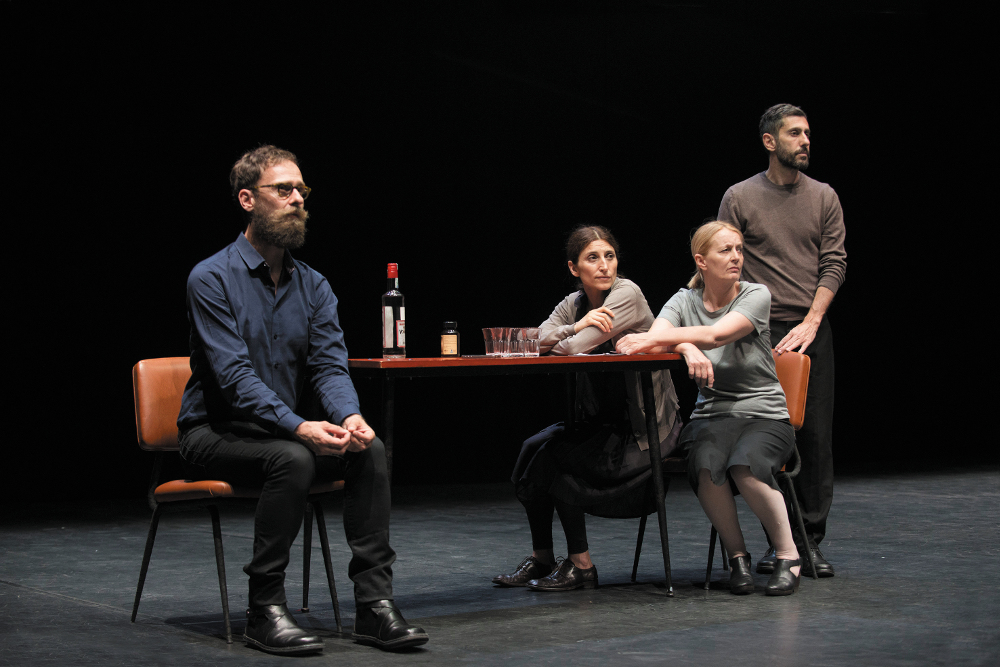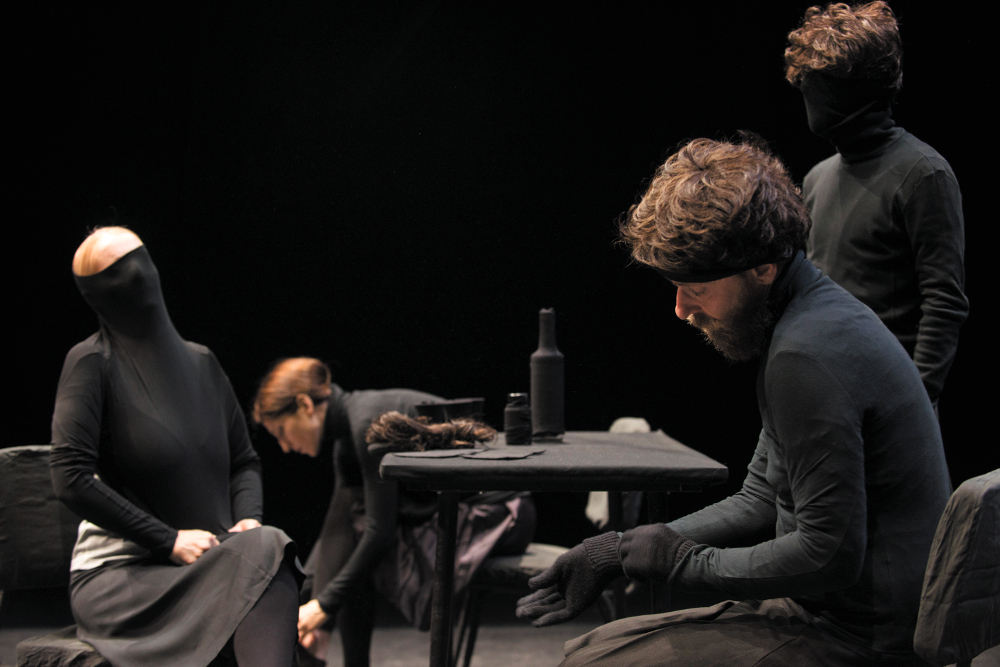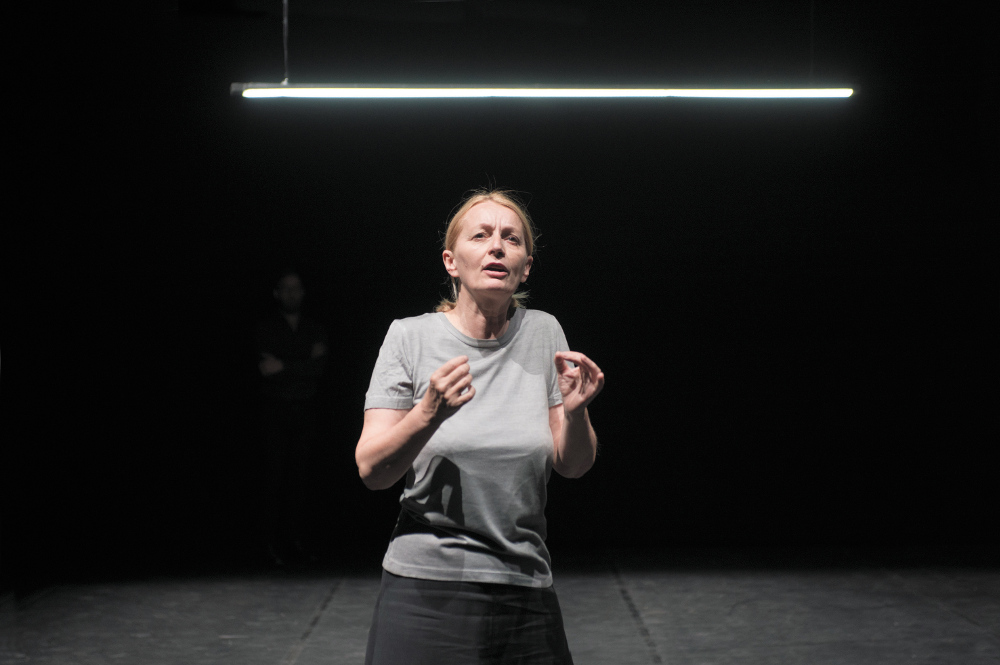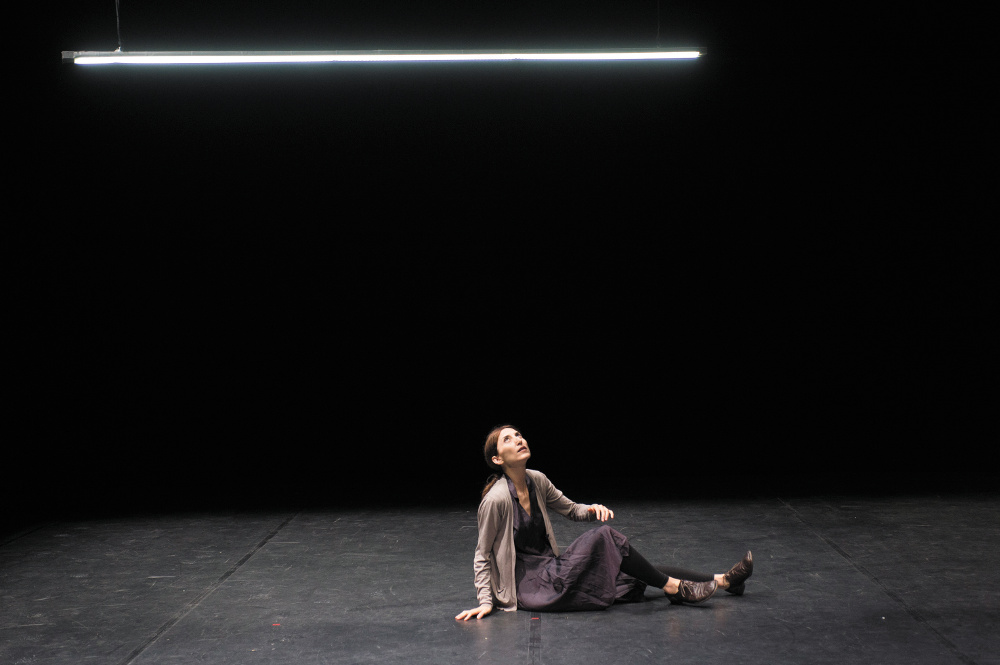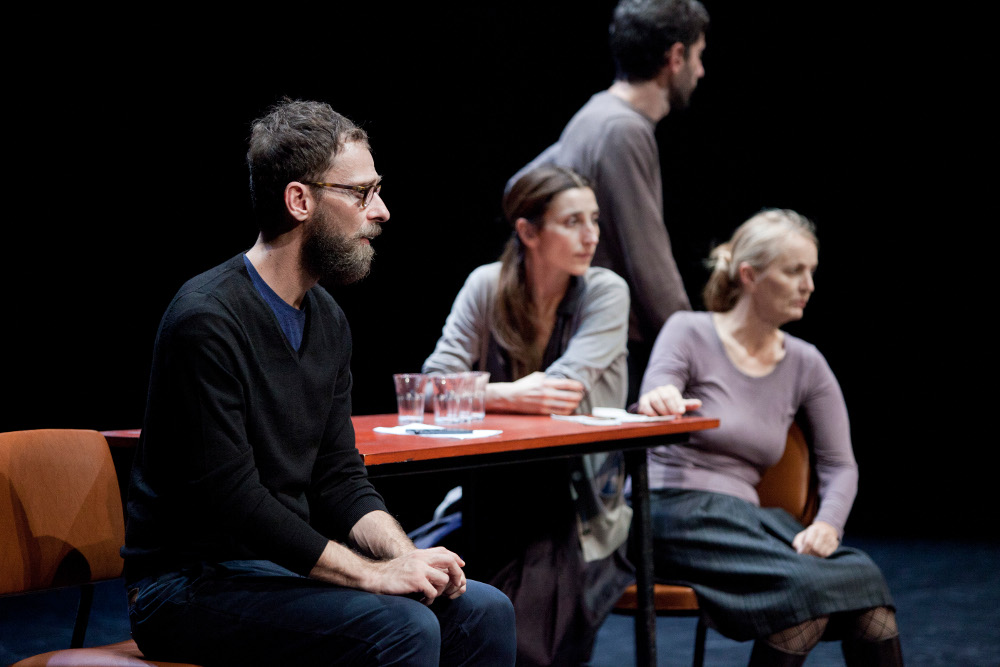If you have already seen the work of Daria Deflorian and Antonio Tagliarini at La Colline, you will no doubt be coming back to see them at the Odéon. Ce ne andiamo per non darvi altre preoccuzioni is a short piece, lasting just under an hour. But as Tagliarini remarks, this “brief time” can also be used to devastating effect, and the voice of trust is often the one which carries the furthest. At the core of this work, the short amount of time and discretion in the words used - in short, its economy of means - reinforces its rigour and humanity. The four actors fight hard for their right to take up their places onstage, and remain there. In order (as one of them adds, not without malice) “to add to your worries”.
The short amount of time corresponds what is left to the four Greek pensioners before it runs out. Deflorian and Tagliarini came across their destinies in the opening pages of The Settlement, a crime thriller by Pétros Márkaris. The novelist cites their names, and dates of birth, plainly visible from their identity cards placed on a small table, alongside a half-empty bottle of vodka, a packet of sleeping pills and a carefully written message. They explain why they have taken their own lives. With no means to live on, they have come to the conclusion that they are “a weight around everyone’s neck, the state and society in general.” Thus, they choose to depart: “four pensioners less, that will make your lives better”.
Deflorian and Tagliarini have not scripted this story. Their project is not about giving us an account of the crisis in Greece, nor transposing it to Italy. They enter the bare stage empty-handed, bathed in shadow. Before us, they question themselves and audiences alike on the matter of their scruples in approaching material of a sensitive nature such as this. “Together”, say the artists, “we present ourselves to the audience with a declaration of a profound sense of powerlessness, a powerlessness whose representation is crucial: our ‘no’ is there from the beginning, right from the first scene.” Daria Deflorian picks up on this: in the face of the powers that be, it is still possible to say no. This “no” on behalf of the pensioners needs to be heard, because we cannot “leave it at that”. But neither it is enough to repeat this “no”. For the artist him or herself, what would be the appropriate action to take - without moralizing, or simply recycling a story - in approaching an act of despair such as this, without indulging in the merely spectacular or compassionate? These same questions are the ones put to the performers and audiences alike. The nature of these questions is not simply an aesthetic one, but also, and more importantly, a civic one. The quest gradually takes shape between the stage and audience. With a lightness of touch not entirely devoid of humour, they search for a way to counter the “incomprehensible, wanton, and powerful” action taken by the pensioners, and “find a constructive response to the - above all, moral - shambles that we find ourselves in”. Incapable, powerless. They find their answer through the means of theatre, and in doing so, give all such disappearances a dignified shape and form.
Cast
collaboration Monica Piseddu, Valentino Villa
lights Gianni staropoli
setting Marina Haas
production A.D.
coproduction 369gradi, Romaeuropa Festival 2013, Teatro di Roma
with Festival d’Automne à Paris
Length 1h15
Le Justicier d’Athènes de Pétros Márkaris est publié aux éditions du Seuil, coll. Policiers, 2013, trad. Michel Volkovitch
,

